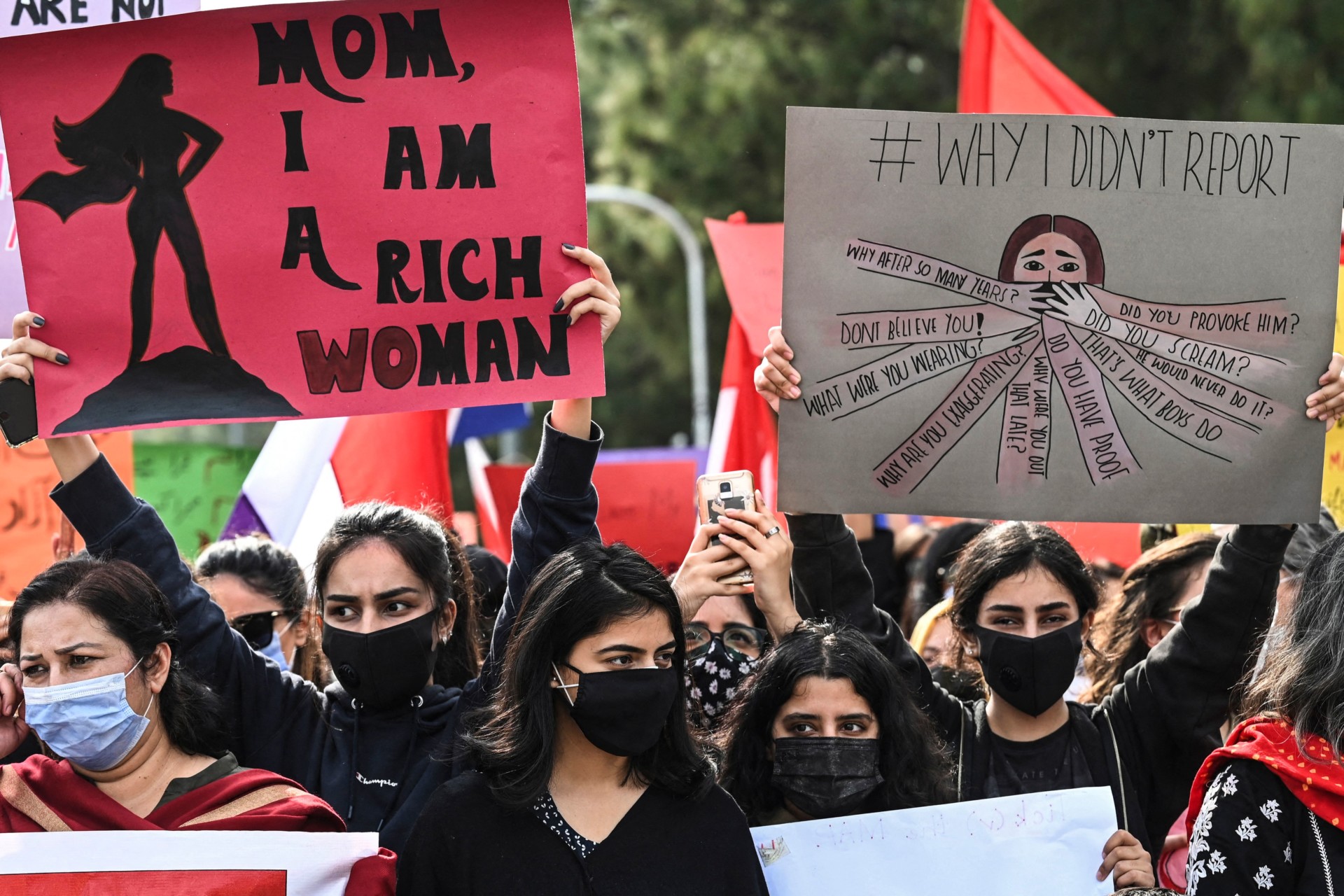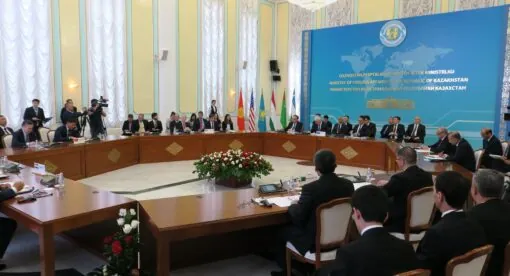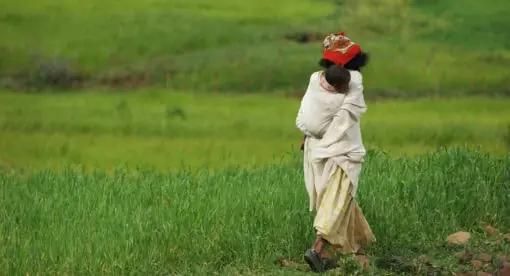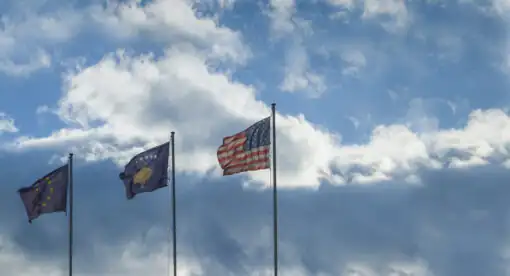When women human rights defenders are at risk, so are democracy, stability, and peace processes. Individual countries – including the United States – and the international community can take steps to protect women’s roles in civil society and reap the benefits of women’s public and political participation.
Rising violence against women human rights defenders, defined by the U.N. Office of the High Commissioner for Human Rights as female individuals working for human rights or any persons who work on gender issues, is alarming because these people are targeted precisely for their necessary work. In conflict areas, for example, women human rights defenders mediate community disputes and facilitate dialogue; provide critical humanitarian aid; and support survivors of sexual violence. Human rights defenders of all genders experience violence and repression, but according to the U.N. Special Rapporteur on Human Rights Defenders, women are “more at risk of suffering certain forms of violence and other violations, prejudice, exclusion, and repudiation than their male counterparts.”
Many women human rights defenders experience sexual and gender-based violence and assault; stereotyping; criminalization; detention and arrest; threats to themselves and their families; character defamation, stigmatisation, and smear campaigns; doxxing (making personal information, such as addresses and phone numbers, public); digital harassment; intimidation; and assassination. For example, in Saudi Arabia, women human rights defenders have been arbitrarily detained by authorities for their activism and have faced sexual violence and torture in prison; in El Salvador, women who work for sexual and reproductive rights have been forced to leave the country due to death threats and reputation damage.
Violence against women human rights defenders represents a severe backlash to women’s leadership and is rooted in many interlinked factors, including gender inequalities, protracted armed conflicts, and rising authoritarianism. The condition of democracy and human rights has worsened in 80 countries during the COVID-19 pandemic. This has coincided with additional risks for human rights defenders.
Human rights groups have highlighted that some women human rights defenders, including those living in conflict-affected communities or under authoritarian or religious fundamentalist governments, are at particular risk, as well as those experiencing intersecting forms of discrimination. From 2015 to 2019, human rights defenders of all genders were killed in at least 64 countries, including in the United States. Most of these deaths were preceded by credible threats against their lives, and many deaths and disappearances have gone unreported in the media. These violations have severe ripple effects beyond harming women human rights defenders themselves and having a chilling effect on women’s civic participation and leadership in many contexts in which such violence occurs.
In conflict and post-conflict contexts, violence against women human rights defenders is hampering progress toward sustainable peace, including in countries that are priorities in U.S. foreign policy. The U.N. Security Council (UNSC) has condemned violence against prominent women in both Afghanistan and Colombia, stating that this violence threatens the success of intra-Afghan talks and the implementation of the 2016 Colombian peace agreement. Continued violence against ex-combatants and social leaders is undermining disarmament, demobilization, and reintegration efforts in Colombia. In Afghanistan, the U.N. Assistance Mission stated in February that targeted attacks against human rights defenders and journalists have contributed to a climate of fear, forced many individuals to go into hiding or flee, and dampened expectations for the current peace negotiations – where women’s human rights are a key issue.
This violence also undermines the tremendous benefits that arise when women can exercise their rights to free public and political participation and decision-making. Studies show that the presence of civil society in a peace process makes a peace agreement 64% less likely to fail. Women’s participation in crafting a peace agreement increases the likelihood by 35% that the agreement will last 15 years or more because, among other reasons, women and members of civil society bring fresh perspectives to the table, focusing on root causes of conflict and on human security and human rights.
Responding to the Violence
Stopping violence against women human rights defenders is ultimately the obligation of each state. However, due to the multifaceted nature of these threats, effectively responding to this issue requires parallel action at the global, national, and local levels, in direct partnership with women human rights defenders themselves who understand the intricacies and dynamics of these attacks. In some contexts, governments are themselves responsible for or complicit in repression or are unable to provide effective protection and prevention mechanisms. As one example, the U.N. Convention on the Elimination of All Forms of Discrimination Against Women (CEDAW) Committee recently ruled that the Libyan government had violated the rights of Magdulein Abaida by failing to investigate and prosecute her unlawful arrest and torture by a government-affiliated militia by failing to investigate and prosecute her unlawful arrest and torture by a government-affiliated militia.
Further, according to the U.N. Special Rapporteur on the promotion and protection of human rights and fundamental freedoms while countering terrorism, counterterrorism and national security measures have often been used to silence and repress women human rights defenders and other members of civil society – a finding that is backed up by human rights groups that provide support to women human rights defenders at risk. In addition, in many countries there are severe restrictions on civil society and NGOs, which the U.N. Secretary General has identified as a barrier to women’s participation.
Because this violence blocks women’s meaningful participation in peace discussions and public life, it is directly related to the Women, Peace and Security agenda. UNSC resolutions 2467 (2019) and 2493 (2019) urge states to condemn and prevent all acts of intimidation and violence against civil society, including women leaders and peacebuilders. Although the U.N. General Assembly and human rights treaty bodies have recognized this issue, it is highly politicized in the UNSC, partly due to push back from China and Russia to human rights and the council’s work on the Women, Peace and Security agenda. Civil society groups have long advocated for this issue to be addressed in the council, but parallel action by powerful actors such as the United States is also required.
The United States has frameworks that can be used to increase support for women human rights defenders. The State Department has existing public-facing guidance on protection, but it should be brought in line with more recent, gender-responsive strategies and commitments. The U.S. Strategy to Prevent Conflict and Promote Stability recognizes that peace “cannot be imposed from the outside” and therefore sets goals of protecting and promoting the rights of members of marginalized groups while committing to strengthening local civil society and the participation of women leaders. In parallel, the Women, Peace and Security Strategy calls on the U.S. to “address the use of violence, intimidation, or harassment to prevent women from participating in decision-making.” The Department of State Plan to implement the above Women, Peace and Security Strategy specifically identifies that this violence is increasing as women claim more opportunities for participation and leadership.
Elevating democracy and human rights within U.S. foreign policy should translate to supporting those who are consistent advocates for these ideals and reorienting policy toward prevention. In her statement at the 65th session of the Commission on the Status of Women, U.S. Vice President Kamala Harris stated that “the exclusion of women in decision-making is the sign of a flawed democracy … [and] the participation of women strengthens democracy.” Women’s rights advocates have long argued that the prevalence of gender-based violence is an important indicator for assessing the overall security of societies. Failing to take these connections seriously will undermine the achievement of broader U.S. foreign policy efforts, particularly on democracy and gender equality. If violence against women human rights defenders persists, it will continue to undermine the health of democratic systems, civic space, human rights, and effective conflict resolution.
Timely action, however, can be decisive. In the immediate term, providing emergency flexible financial and logistical support to women human rights defenders at risk can help them access safety, particularly as women often have less access to financial resources than their male counterparts. Long-term investment in the prevention of conflict and violence, early warning systems, monitoring, and protection mechanisms can prevent these violations from occurring. Boldly condemning violence and repression of women human rights defenders can help put pressure on governments to prevent and respond to this violence.
Recommendations
The United States should take concrete steps to back up existing commitments and comprehensively address this issue in a gender-responsive way and in partnership with civil society, including women human rights defenders themselves.
- Update and expand upon existing public-facing policies on supporting human rights defenders and make gender a central part of them;
- Expand confidential emergency support for women human rights defenders at risk, including flexible financial support for security and relocation, and provide visas for themselves, their families, and colleagues to relocate if desired. All efforts should be made to prevent any further risks to human rights defenders due to perceived support by foreign governments;
- Develop country-level strategies in direct partnership with women human rights defenders who face risks and reprisals for their work;
- Finance protection and investigation mechanisms when applicable;
- Fund the work of U.N. Special Procedures and civil society groups that document and report on violence against civil society;
- Expand early warning systems and disaggregated data collection to understand the precise context and nature of these threats and risks;
- Work with the private sector to address online gender-based violence, as well as online surveillance and censorship of civil society;
- Ratify international conventions such as CEDAW;
- Work to hold actors accountable for violations when relevant;
- Champion this issue at the United Nations, including in the Security Council;
- Protect civil society space in the U.S., where civil society also faces risks to their work;
- Work to ensure that U.S. actions do not contribute to the creation of environments that could destabilize the state of human rights and democracy, and therefore to the safety of women human rights defenders. Avoid militarized responses and intervention; center human rights and human security in all policies, including foreign assistance; prioritize conflict prevention; and address the root causes of violence and insecurity.
Genevieve Riccoboni is the Women, Peace and Security Programme Associate at the Women’s International League for Peace and Freedom (WILPF). Riccoboni works focuses on advancing women’s meaningful participation in peace processes, conflict prevention, and feminist perspectives on peace and security at the United Nations. She received her MPhil in World History with distinction from the University of Cambridge and is based in New York. Follow her on Twitter at @genriccoboni.
The views expressed in this article are those of the author and not an official policy or position of the Newlines Institute.






